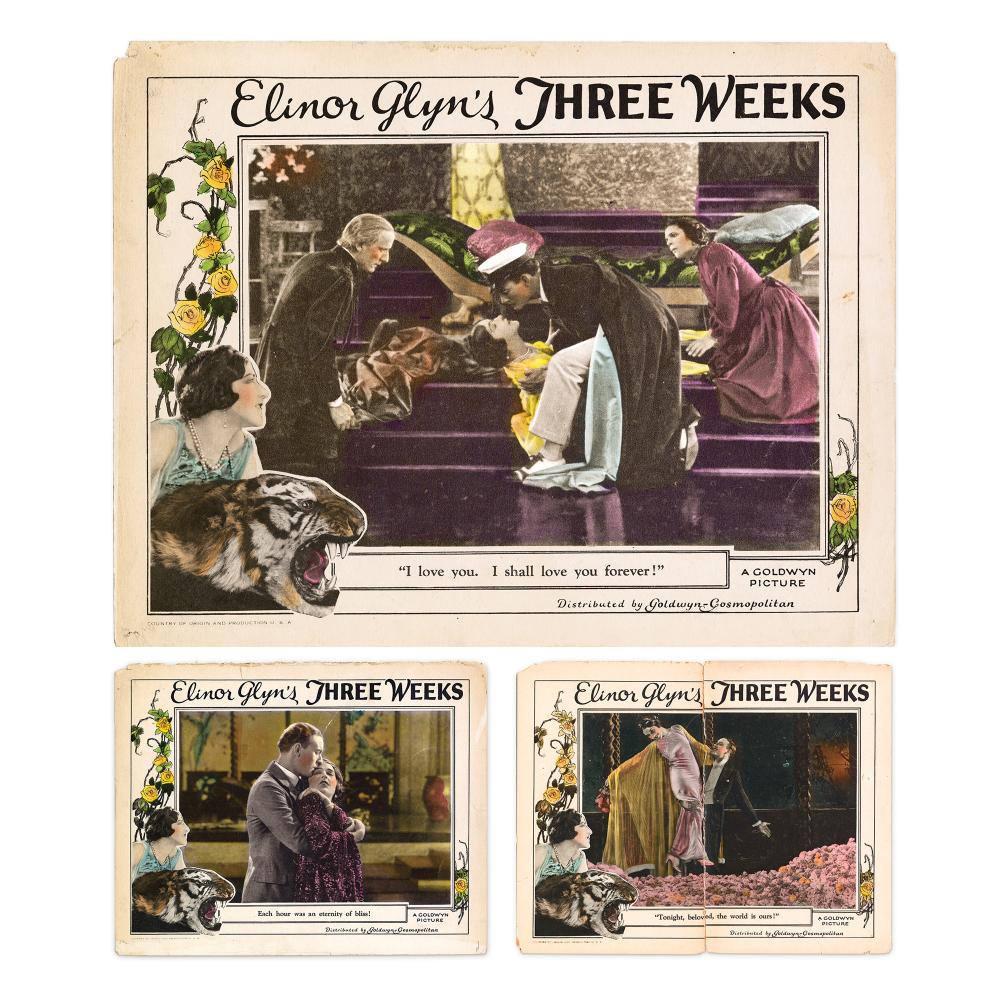These lobby cards were used to advertise the 1924 film Three Weeks, a romance based on Elinor Glyn’s infamous novel of the same name. The controversial plot followed the brief but passionate affair between a young Englishman and an older foreign noblewoman dissatisfied in her marriage. As the swooning couple featured on the cards promised, the cinematic adaptation would pack the punch of the original—bringing its eroticism, passion, and drama from the page to the silver screen.
Before movie previews became commonplace, studios relied heavily on lobby cards to promote forthcoming releases. So named because they were placed in the entrances and vestibules of movie theaters, these 11- by 14-inch posters used images, typography, and graphic flourishes to capture the attention of spectators walking in and out of busy cinemas. Typically, studios would produce a set of eight or more cards per film—one title card followed by seven scene cards, like the ones showcased here—that hyped the production’s starring cast or teased key moments or emotions from its plot.
Lobby cards are important components of the visual culture and advertising of early cinema. They are also sometimes all that remains of silent movies, which were typically printed on fragile and highly flammable nitrate film stock. Historians estimate that a staggering 90 percent of all silent films have been lost to time—a viewable print of Three Weeks was only recently discovered—making lobby cards a crucial means of reconstructing the look and feel of early motion pictures no longer with us. The cards are just one of many media and cinema studies resources Dartmouth College is making available online through its Media Ecology Project’s Early Cinema Compendium, a digital humanities initiative which is directed by Mark J. Williams, an associate professor of film and media studies who has been the recipient of several NEH grants in support of work in these fields.
*Correction: This article was updated on January 11, 2023, to reflect the fact that NEH has funded five projects on visual culture directed or co-directed by Mark J. Williams but not, specifically, the digitization of the lobby cards.


